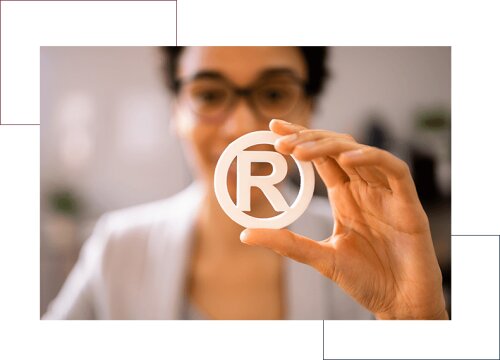Best Copyright Lawyers in United States
Share your needs with us, get contacted by law firms.
Free. Takes 2 min.
Or refine your search by selecting a city:
List of the best lawyers in United States
About Copyright Law in United States
Copyright law in the United States is designed to protect the rights of creators over their original works. Under the Copyright Act, these rights include the exclusive ability to reproduce, distribute, perform, display, and create derivative works based on their creations. The law applies to a broad range of creative works, including literature, music, film, software, and artwork. Copyright protection generally lasts for the life of the author plus 70 years, after which the work enters the public domain.
Why You May Need a Lawyer
There are several scenarios where legal assistance might be necessary. If you believe someone is infringing upon your copyright, a lawyer can help assess and enforce your rights. Conversely, if you are accused of copyright infringement, legal counsel can help defend against these claims. Additionally, a lawyer can be invaluable when negotiating licenses or contracts, ensuring compliance with copyright laws, and understanding complex legal terms and conditions regarding copyright.
Local Laws Overview
Copyright in the U.S. is primarily governed by federal law, namely the Copyright Act of 1976. However, state laws may also influence issues related to the enforcement of copyright, particularly in regards to unfair competition or contracts. Key aspects to consider include fair use provisions that allow limited use of copyrighted material without permission under certain circumstances, such as for criticism, comment, news reporting, teaching, or research. Additionally, the Digital Millennium Copyright Act (DMCA) imposes rules for online platforms and service providers.
Frequently Asked Questions
What exactly does copyright protect?
Copyright protects original works of authorship that are fixed in a tangible medium of expression, including literary, musical, and artistic works.
How do I register a copyright?
To register a copyright, you can complete an application form and submit it along with a nonrefundable filing fee and a copy of your work to the U.S. Copyright Office.
What is the fair use doctrine?
Fair use is a legal principle that allows limited use of copyrighted material without permission from the rights holder for certain purposes, like criticism, news reporting, and research.
How long does copyright last?
For works created after January 1, 1978, copyright generally lasts for the life of the author plus 70 years. Different rules apply for works made for hire and anonymous works.
What is public domain?
Works in the public domain are not protected by copyright and can be freely used by anyone. This typically includes works whose copyright has expired or never qualified for copyright protection.
Can I use copyrighted music in my YouTube videos?
Using copyrighted music without permission may infringe on the owner's rights. However, some music can be used under a Creative Commons license or by paying for a license.
What should I do if someone is infringing my copyright?
Consider sending a cease-and-desist letter, filing a DMCA takedown notice if the infringement is online, or seeking legal advice to pursue litigation.
Do I need a lawyer to file a copyright registration?
No, you can file for copyright registration yourself, though consulting a lawyer may be beneficial for complex cases or to ensure accuracy.
Is there a way to transfer copyright ownership?
Yes, copyright can be transferred in whole or part through a written agreement, often involving the sale or licensing of rights.
What is the difference between copyright, trademark, and patent?
Copyright protects expressive works; a trademark protects symbols, names, and slogans used to identify goods or services; a patent protects inventions.
Additional Resources
Consider consulting the U.S. Copyright Office for official guidance and forms. Organizations such as The Authors Guild or Creative Commons provide additional support and information. Legal advice from intellectual property attorneys can also be advantageous.
Next Steps
If you require legal assistance regarding copyright, consider consulting with an experienced intellectual property lawyer. You can find one through bar association referral services, online legal directories, or recommendations. Lawyers can provide guidance on legal strategy, assist in litigation, or help draft licensing agreements. It's important to act quickly to protect your rights or defend against claims effectively.
Lawzana helps you find the best lawyers and law firms in United States through a curated and pre-screened list of qualified legal professionals. Our platform offers rankings and detailed profiles of attorneys and law firms, allowing you to compare based on practice areas, including Copyright, experience, and client feedback.
Each profile includes a description of the firm's areas of practice, client reviews, team members and partners, year of establishment, spoken languages, office locations, contact information, social media presence, and any published articles or resources. Most firms on our platform speak English and are experienced in both local and international legal matters.
Get a quote from top-rated law firms in United States — quickly, securely, and without unnecessary hassle.
Disclaimer:
The information provided on this page is for general informational purposes only and does not constitute legal advice. While we strive to ensure the accuracy and relevance of the content, legal information may change over time, and interpretations of the law can vary. You should always consult with a qualified legal professional for advice specific to your situation.
We disclaim all liability for actions taken or not taken based on the content of this page. If you believe any information is incorrect or outdated, please contact us, and we will review and update it where appropriate.
Browse copyright law firms by state in United States
Refine your search by selecting a state.
















